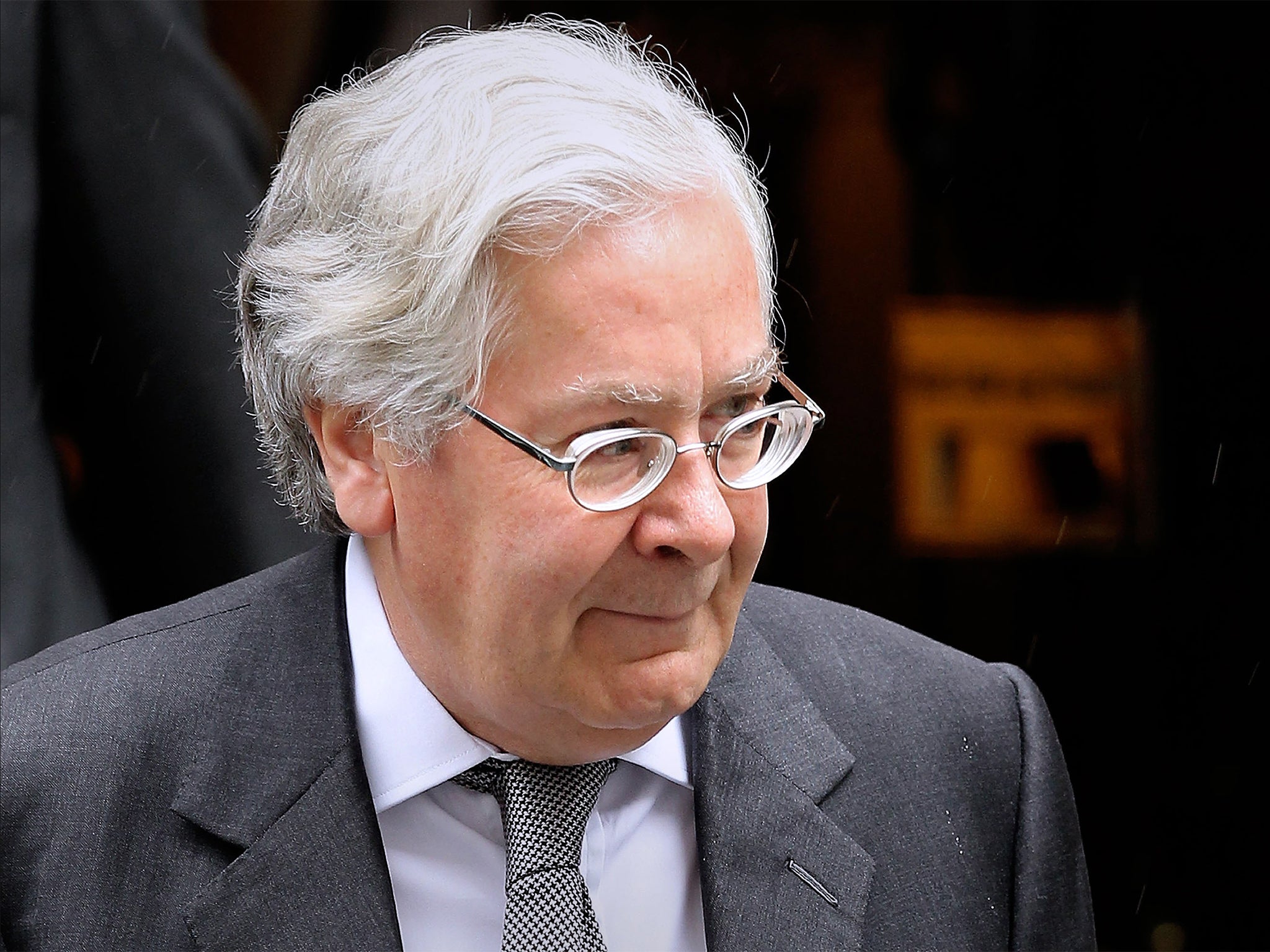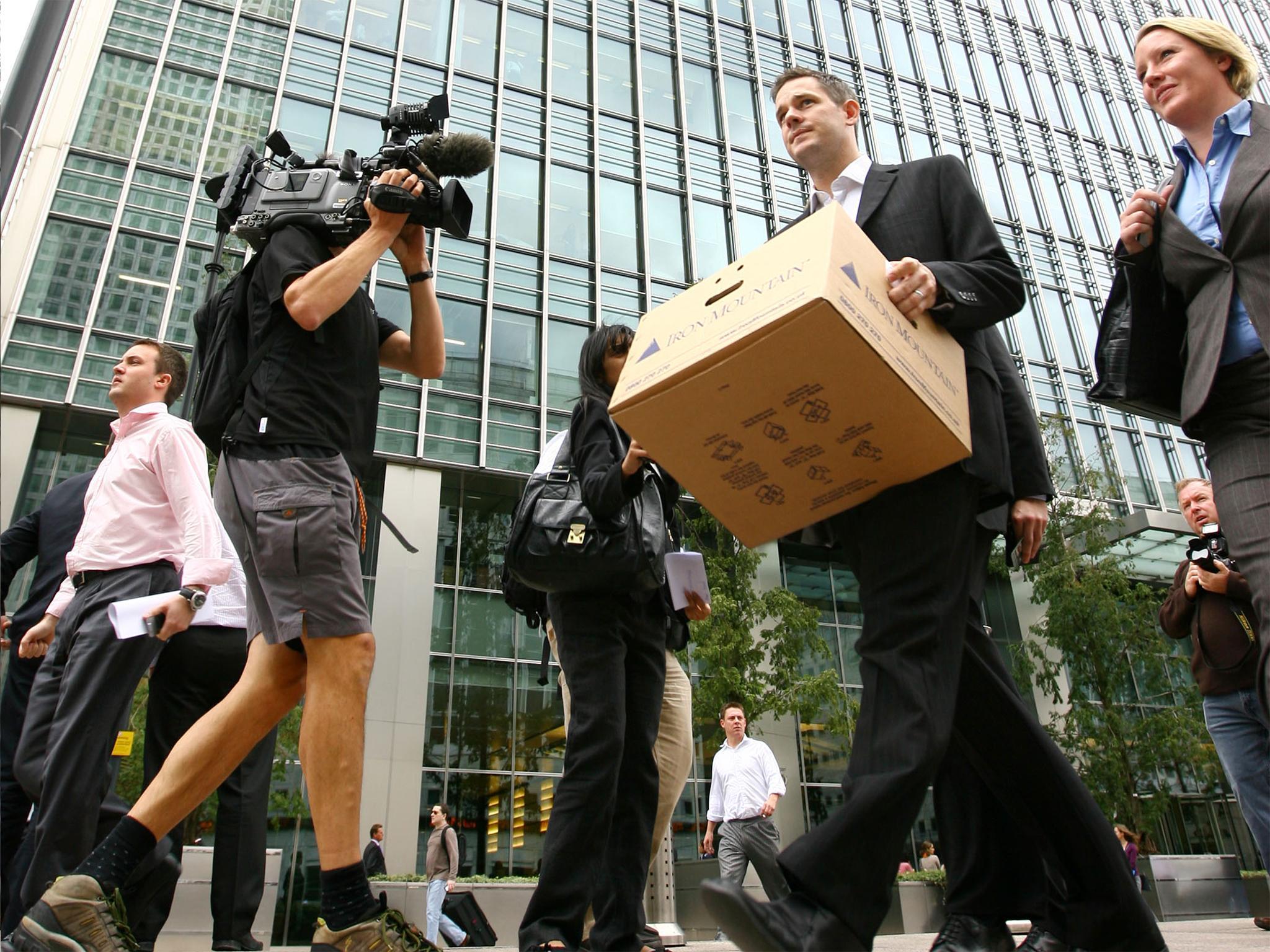Bank of England's financial crisis struggles revealed: The hidden history of the crisis
Newly released minutes of the Bank's Court meetings reveal some fascinating Threadneedle Street rows and misjudgements

Your support helps us to tell the story
From reproductive rights to climate change to Big Tech, The Independent is on the ground when the story is developing. Whether it's investigating the financials of Elon Musk's pro-Trump PAC or producing our latest documentary, 'The A Word', which shines a light on the American women fighting for reproductive rights, we know how important it is to parse out the facts from the messaging.
At such a critical moment in US history, we need reporters on the ground. Your donation allows us to keep sending journalists to speak to both sides of the story.
The Independent is trusted by Americans across the entire political spectrum. And unlike many other quality news outlets, we choose not to lock Americans out of our reporting and analysis with paywalls. We believe quality journalism should be available to everyone, paid for by those who can afford it.
Your support makes all the difference.The Bank of England today releases the minutes of the meetings of its governing “Court” between 2007 and 2008, at the height of the global financial crisis. The documents reveal some fascinating detail about the Bank’s response to the crisis and lift the lid on some of the tensions within Threadneedle Street as lenders failed and global financial markets went into meltdown. Here are some of the highlights:
Mervyn King’s volte-face on financial regulation
Shortly before Northern Rock was forced to request emergency loans, then-Governor Mervyn King told the Court that the “tripartite” system of financial regulation was working very well. Under this system, introduced in 1997, the Bank had responsibility for general financial stability; scrutinising individual lenders was the job of the Financial Services Authority; and the Treasury dealt with legislation.
“Whereas some commentators might have suggested that the problems highlighted the drawbacks of separating central banking from supervision, the opposite was the case” Mr King is recorded as saying on 12 September 2007.

However, by 12 December, after the run on Northern Rock, he had entirely changed his mind. He presented a proposal paper to the Court suggesting that the tripartite structure should be scrapped and that the Bank should have more powers over individual financial firms. It was a regulatory power grab by the Bank at the expense of the FSA. The minutes relate that Sir Callum McCarthy, the chair of the FSA and a member of the Court, left the meeting before that particular briefing began.
The Northern Rock communication breakdown
The Bank was caught flat-footed by the first bank run in Britain in 150 years. On 13 September 2007 the BBC revealed that the lender had been forced to tap the Bank for emergency liquidity support. Queues formed outside branches as worried depositors sought to pull their money out.
The minutes reveal that the debacle led to some soul searching at Threadneedle Street. On 11 June 2008, the outgoing communications chief, Peter Rodgers, told the Court “communications had been very difficult and had not worked”. The Bank was also concerned about “intense” briefing against it over its performance in the crisis, “including from senior people”. Mr Rodgers told the Court the Bank had been “trying to win back lost ground in terms of its reputation” ever since. However, he added that even a good communications performance could not have compensated for the fact that there existed (at the time) no legislative framework for regulators to deal with a depositor run.
The leak witch-hunt
Mervyn King was irked by signs that a director on the Court was leaking information to the press. Directors were told on 11 June 2008 that a recent story about the Bank’s deputy governorship had been “particularly damaging”. The previous month it had emerged that Rachel Lomax was departing as deputy governor and there were reports of a clash between the Bank and the Treasury over who should replace her. The Court was informed that leaking was “highly improper and inconsistent with the oath directors take on appointment”. The minutes say: “It was requested that any non-executive directors that had had conversations with members of the media about those issues to speak privately with the chairman”. In other words: confess. The Governor added that the press leaks had made him less inclined to share critical and sensitive information with the Court in future.
How Ireland and Germany made the crisis worse
The minutes highlight tensions between the Bank and other authorities in the wake of the failure of Lehman Brothers, which forced governments around the Western world to take emergency action to prop up their banking sectors. On 15 October 2008 the former deputy governor, Paul Tucker, told the Court the financial rescue actions of the Irish and German governments had been “both unclear and un-coordinated and led effectively to a beggar-thy-neighbour policy which froze the international banking system”.
The previous month Ireland had offered a blanket state guarantee for all the liabilities of its tottering domestic banking sector. Around the same time Berlin provided German banks a generous €500bn (£390bn) rescue package of recapitalisation funds, guarantees and asset purchases.
Squirming over forecasts
In a rare instance of the Court challenging the Bank’s executive, some directors asked on 15 October 2008 why the economic forecasts from the Bank’s staff had been so wrong. The UK economy was contracting, despite the expectations of a mere slowdown in growth. Chief economist Spencer Dale told the Court that other bodies such as the IMF had also failed to forecast the UK’s recession and that the Bank’s errors “did not appear out of line”.

‘Cathartic’ recapitalisation
The minutes show that the Bank was an early proponent of the injection of public money into private banks to calm the markets. On 15 October 2008 they relate that the Bank had sent such a proposal to the Government earlier in the year. A £37bn public bailout of Royal Bank of Scotland, Lloyds and HBOS was announced by Gordon Brown on 13 October.
The minutes also show that the former deputy governor, Paul Tucker, told the Court that the role of the Government’s recapitalisation appeared to be “largely cathartic, to demonstrate that the Government was prepared to do whatever was necessary to maintain financial stability”.
Naivety on bonuses
After the private banks were bailed out the question of bonus payments to their staff was discussed. On 15 October 2008 Mr Tucker said injections of public capital would be used to “influence” remuneration practices and suggested that banks might actually welcome the imposition of external controls on pay. “It was difficult for banks individually to take action whereas a collective approach would make it easier to change the culture of compensation,” the minutes record. In fact there followed a long-running fight over the level of bonuses awarded to the heads of taxpayer-rescued banks.
Defending its expertise
Critics said the financial crisis had exposed a lack of practical banking and markets experience at the Bank. On 16 September 2008 the Governor told that Court such criticism was “misplaced”. In his view: “What had been demonstrated over the recent period was that the most important role of a central bank was policy making and it needed to have the right expertise to do that” He added: “That was a role done by central bankers rather than bankers.”
Join our commenting forum
Join thought-provoking conversations, follow other Independent readers and see their replies
Comments